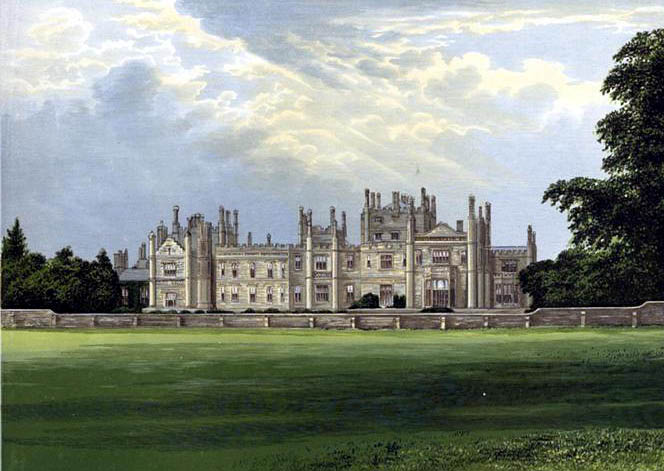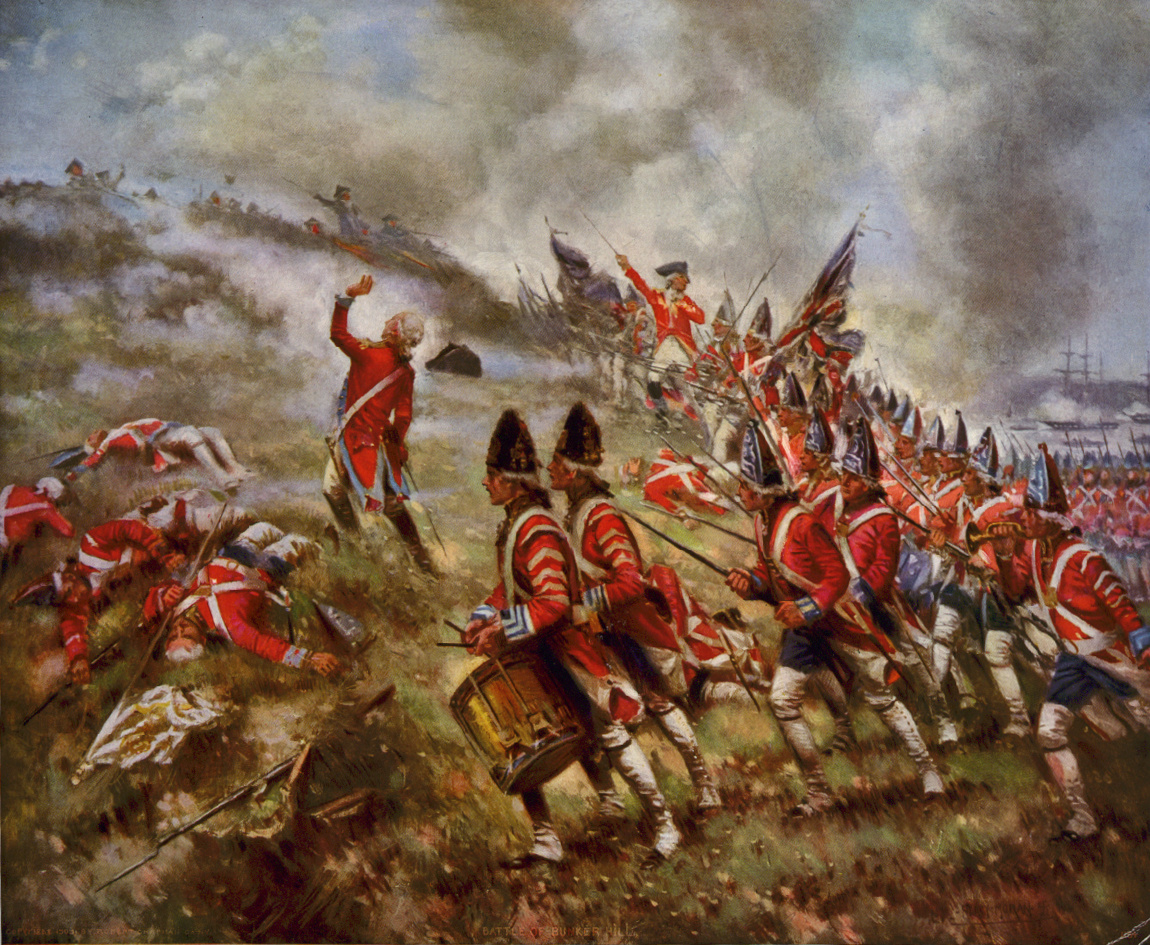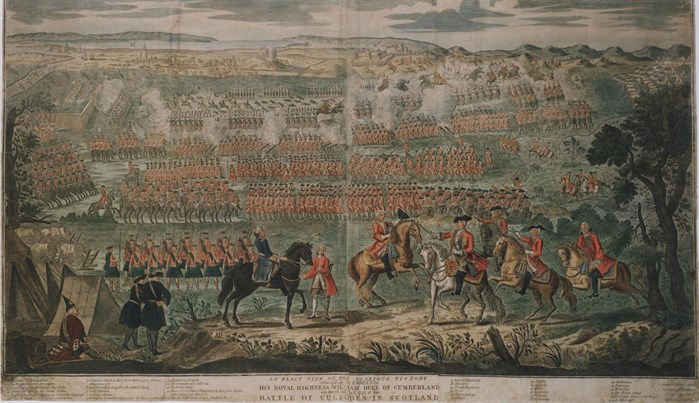|
George Boscawen (1712–1775)
Lieutenant-General Hon. George Boscawen (1 December 1712 – 3 May 1775) was a British Army officer and politician, the fourth son of Hugh Boscawen, 1st Viscount Falmouth. Believed to have been educated at Eton College, he was commissioned as an ensign in the First Foot Guards in 1728, and promoted to captain in 1738. He saw active service during the War of the Austrian Succession, distinguishing himself at the battles of Fontenoy and Dettingen. On 3 February 1743, he was married to Ann Trevor, the daughter of John Morley Trevor. The couple would go on to have two sons, politician George Boscawen and author William Boscawen; and two daughters. Shortly after his marriage, on 22 February, he was elected as Member of Parliament for Penryn, following the decision of Edward Vernon (who had been simultaneously elected for three different constituencies) to take up his seat at Ipswich. He was promoted to the rank of colonel on 18 August 1749, and appointed as Aide-de-camp to K ... [...More Info...] [...Related Items...] OR: [Wikipedia] [Google] [Baidu] |
Hugh Boscawen, 1st Viscount Falmouth
Hugh Boscawen, 1st Viscount Falmouth (pronounced "Boscowen") ( ; ca. 1680 – 25 October 1734), was an English people, English Whigs (British political party), Whig politician who sat in the House of Commons of England, House of Commons for Parliamentary representation from Cornwall, Cornish constituencies from 1702 until 1720 when he was raised to the peerage. Origins Boscawen was the eldest son of Edward Boscawen (1628–1685), Edward Boscawen (1628–1685), Member of parliament, MP and merchant, by his wife Jael Godolphin, daughter of Francis Godolphin (died 1667), Sir Francis Godolphin (d. 1667). The Boscawens are an ancient Cornish family. His grandfather Hugh Boscawen (fl. 1620) of Tregothnan was thirteenth in descent from a certain Henry de Boscawen. He derived a huge income from his copper mines at Chacewater mine, Chacewater and Gwennap where he was the principal landowner. The Chacewater mine, now known as Wheal Busy, was located in what was known at the time as "the ... [...More Info...] [...Related Items...] OR: [Wikipedia] [Google] [Baidu] |
George II Of Great Britain
George II (George Augustus; ; 30 October / 9 November 1683 – 25 October 1760) was King of Great Britain and King of Ireland, Ireland, Duke of Brunswick-Lüneburg (Electorate of Hanover, Hanover) and a prince-elector of the Holy Roman Empire from 11 June 1727 (Old Style and New Style dates, O.S.) until his death in 1760. Born and brought up in northern Germany, George is the most recent British monarch born outside Great Britain. The Act of Settlement 1701 and the Acts of Union 1707 positioned his grandmother Sophia of Hanover and her Protestant descendants to inherit the British throne. George married Princess Caroline of Ansbach, with whom he had eight children. After the deaths of George's grandmother and Anne, Queen of Great Britain, George's father, the Elector of Hanover, ascended the British throne as George I of Great Britain, George I in 1714. In the first years of his father's reign as king, Prince George was associated with opposition politicians until they rej ... [...More Info...] [...Related Items...] OR: [Wikipedia] [Google] [Baidu] |
William Howe, 5th Viscount Howe
William Howe, 5th Viscount Howe, (10 August 1729 – 12 July 1814), was a British Army officer who rose to become Commander-in-Chief of British land forces in the Colonies during the American War of Independence. Howe was one of three brothers who had distinguished military careers. In historiography of the American war he is usually referred to as Sir William Howe to distinguish him from his brother Richard, who was 4th Viscount Howe at that time. Having joined the army in 1746, Howe saw extensive service in the War of the Austrian Succession and Seven Years' War. He became known for his role in the capture of Quebec in 1759 when he led a British force to capture the cliffs at Anse-au-Foulon, allowing James Wolfe to land his army and engage the French in the Battle of the Plains of Abraham. Howe also participated in the campaigns to take Louisbourg, Belle Île and Havana. He was appointed Lieutenant-Governor of the Isle of Wight, a post he held until 1795. Howe was sent ... [...More Info...] [...Related Items...] OR: [Wikipedia] [Google] [Baidu] |
John Huske
Lieutenant General John Huske ( 1692 – 18 January, 1761) was a British military officer whose active service began in 1707 during the War of the Spanish Succession and ended in 1748. During his early career, he was a close associate of the Earl of Cadogan and the Duke of Marlborough. From 1715 to 1720, he was also employed as a British political and diplomatic agent, primarily involved in anti- Jacobite operations. He commanded a brigade at Dettingen; during the Jacobite rising of 1745, he fought at Falkirk, Muir, and Culloden. Promoted major-general in 1743, his active career ended when the War of the Austrian Succession ended in 1748. He never married and died in London on 18 January, 1761. His brother Ellis emigrated to North America, and one of his relatives, another John Huske, was a delegate to the 1789 North Carolina Constitutional Convention. Personal details John Huske was born in 1692, eldest son of John (1651–1703) and Mary Huske (1656–?); little is known ... [...More Info...] [...Related Items...] OR: [Wikipedia] [Google] [Baidu] |
Cider Bill Of 1763
The Cider Bill of 1763 was a proposed measure by the British government of Lord Bute to put a tax on the production of cider. Britain's national debt had reached unprecedented levels during the early 1760s following the country's involvement in the Seven Years War which had been very expensive. Resignation of Lord Bute and replacement by George Grenville Lord Bute proposed a tax of four shillings which would be levied on every hogshead of cider made. This produced an instant reaction from the cider-producing areas, particularly in the West Country which elected many MPs. Riots broke out and there was widespread outrage against the bill. The dispute added to Bute's growing unpopularity and in mid-1763 he stepped down as Prime Minister. His successor George Grenville pushed through the tax, defeating an opposition motion for repeal in February 1764. The reaction to the tax has been compared to the similar hostility in the American colonies to the Stamp Act 1765. George Grenville i ... [...More Info...] [...Related Items...] OR: [Wikipedia] [Google] [Baidu] |
George Boscawen (junior)
George Boscawen (4 September 1745 – 14 October 1833) was an English politician who sat in the House of Commons from 1768 to 1780. Boscawen was the son of Lieutenant-General Hon. George Boscawen and grandson of Hugh Boscawen, 1st Viscount Falmouth. His younger brother was the author William Boscawen. He attended Eton College from 1754 to 1761. In 1768 he was elected to Parliament for St Mawes, and in 1774 for Truro. In the latter year he was commissioned an ensign in the 4th Regiment of Foot. In May 1776, he quit England to France with Annabella Bunbury, former wife of Sir Patrick Blake, 1st Baronet, and daughter of Sir William Bunbury, 5th Baronet. They remained abroad until 1779, when they married in Chislehurst, Kent. Boscawen did not stand in the general election of 1780. He died in Teignmouth Teignmouth ( ) is a seaside town, fishing port and civil parishes in England, civil parish in the English county of Devon. It is on the north bank of the estuary mou ... [...More Info...] [...Related Items...] OR: [Wikipedia] [Google] [Baidu] |
1774 British General Election
The 1774 British general election returned members to serve in the House of Commons of Great Britain, House of Commons of the 14th Parliament of Great Britain to be held, after the merger of the Parliament of England and the Parliament of Scotland in 1707. Frederick North, Lord North, Lord North's government was returned with a large majority. The opposition consisted of factions supporting the Rockingham Whigs, Marquess of Rockingham and William Pitt, 1st Earl of Chatham, both of whom referred to themselves as Whigs. North's opponents referred to his supporters as Tories, but no Tory party existed at the time and his supporters rejected the label. Summary of the constituencies See 1796 British general election for details. The constituencies used were the same throughout the existence of the Parliament of Great Britain. Dates of election The general election was held between 5 October 1774 and 10 November 1774. North's ministry pushed for elections to occur in 1774 (instead of t ... [...More Info...] [...Related Items...] OR: [Wikipedia] [Google] [Baidu] |
Hugh Boscawen, 2nd Viscount Falmouth
General Hugh Boscawen, 2nd Viscount Falmouth (20 March 1707 – 4 February 1782), styled The Honourable Hugh Boscawen between 1720 and 1734, was a British soldier and politician. Boscawen was the eldest son of Hugh Boscawen, 1st Viscount Falmouth, by Charlotte Godfrey, daughter of Colonel Charles Godfrey, Master of Jewel Office, by Arabella Churchill, daughter of Sir Winston Churchill and sister of the Duke of Marlborough. Admiral Edward Boscawen was his younger brother. He was returned to Parliament for Truro in 1727, a seat he held until 1734, when he succeeded his father in the viscountcy. In 1747 he was appointed Captain of the Yeomen of the Guard, a post he held until his death 35 years later. He was sworn of the Privy Council in 1756. He also served in the British Army. He became a lieutenant-general in 1759 and a full general in 1772. From 1761 to 1782 he was Vice-Admiral of Cornwall. Lord Falmouth married Hannah Catherine Maria Smith, daughter of Thomas Smith, of Worpl ... [...More Info...] [...Related Items...] OR: [Wikipedia] [Google] [Baidu] |
Truro (UK Parliament Constituency)
Truro was the name of a United Kingdom constituencies, parliamentary constituency in Cornwall represented in the House of Commons of England and later of House of Commons of Great Britain, Great Britain from 1295 until 1800, then in the Parliament of the United Kingdom from 1801 to 1918 and finally from 1950 to 1997. Until 1885 it was a parliamentary borough, electing two members of parliament (MPs) by the plurality-at-large system of election; the name was then transferred to the surrounding county constituency, which elected a single Member by the first past the post system. In 1997, although there had been no changes to its boundaries, it was renamed as Truro and St Austell (UK Parliament constituency), Truro and St Austell, reflecting the fact that St Austell by then had a larger population than Truro. Boundaries 1950–1974: The Borough of Truro, the Urban District of St Austell, the Rural District of Truro except the parish of Gwennap, and in the Rural District of St Aus ... [...More Info...] [...Related Items...] OR: [Wikipedia] [Google] [Baidu] |
1761 British General Election
The 1761 British general election returned members to serve in the House of Commons of the 12th Parliament of Great Britain to be summoned, after the merger of the Parliament of England and the Parliament of Scotland in 1707. This was the first Parliament chosen after the accession to the throne of King George III. It was also the first election after George III had lifted the conventional proscription on the employment of Tories in government. The King prevented the Prime Minister, the Duke of Newcastle, from using public money to fund the election of Whig candidates, but Newcastle instead simply used his private fortune to ensure that his ministry gained a comfortable majority. However, with the Tories disintegrating, as a result of the end of their proscription providing them with new opportunities for personal advancement, and the loyalty they felt to the new king causing them to drift apart, there was little incentive for Newcastle's supporters to stay together. What little ... [...More Info...] [...Related Items...] OR: [Wikipedia] [Google] [Baidu] |
23rd Regiment Of Foot
Third or 3rd may refer to: Numbers * 3rd, the ordinal form of the cardinal number 3 * , a fraction of one third * 1⁄60 of a ''second'', i.e., the third in a series of fractional parts in a sexagesimal number system Places * 3rd Street (other) * Third Avenue (other) * Highway 3 Music Music theory * Interval number of three in a musical interval **Major third, a third spanning four semitones **Minor third, a third encompassing three half steps, or semitones **Neutral third, wider than a minor third but narrower than a major third ** Augmented third, an interval of five semitones ** Diminished third, produced by narrowing a minor third by a chromatic semitone *Third (chord), chord member a third above the root *Degree (music), three away from tonic **Mediant, third degree of the diatonic scale **Submediant, sixth degree of the diatonic scale – three steps below the tonic ** Chromatic mediant, chromatic relationship by thirds *Ladder of thirds, similar to th ... [...More Info...] [...Related Items...] OR: [Wikipedia] [Google] [Baidu] |
Lieutenant General
Lieutenant general (Lt Gen, LTG and similar) is a military rank used in many countries. The rank traces its origins to the Middle Ages, where the title of lieutenant general was held by the second-in-command on the battlefield, who was normally subordinate to a captain general. In modern armies, lieutenant general normally ranks immediately below general (or colonel general) and above major general; it is equivalent to the navy rank of vice admiral, and in air forces with a separate rank structure, it is equivalent to air marshal. In the United States, a lieutenant general has a three star insignia and commands an army corps, typically made up of three army divisions, and consisting of around 60,000 to 70,000 soldiers. The seeming incongruity that a lieutenant general outranks a major general (whereas a major outranks a lieutenant) is due to the derivation of major general from sergeant major general, which was a rank subordinate to lieutenant general (as a lieutenan ... [...More Info...] [...Related Items...] OR: [Wikipedia] [Google] [Baidu] |





